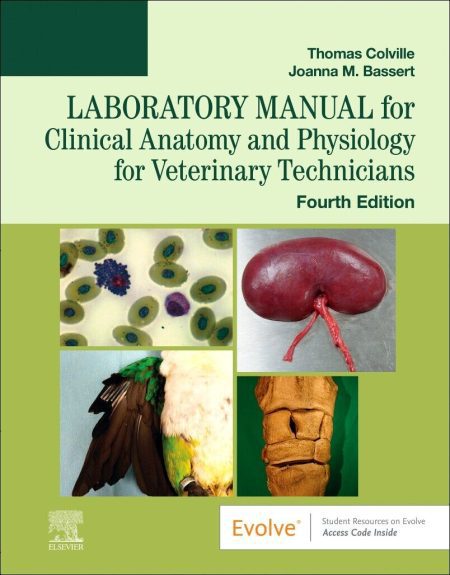Περιεχόμενα
VOLUME 1
SECTION I: Veterinary Medicine Worldwide
1. Client Communication
2. The Medical History
3. The Physical Examination
4. Evidence-Based Medicine
5. Biomedical Statistics and Veterinary Literature
6. Pain Medicine: Key Concepts
7. Antimicrobial Stewardship
8. International Travel
9. Health Concerns of Imported Pets
SECTION II: Differential Diagnosis
General
10. “Ain’t Doin’ Right”: The Nonspecific Chief Concern of Ill Thrift
11. Distinguishing Behavioral Disorders From Medical Disorders
12. Dermatologic Manifestations of Systemic Disease
13. Ophthalmic Manifestations of Systemic Disease
14. Neurologic Manifestations of Systemic Disease
15. Intoxication Versus Acute Nontoxicologic Illness: Differentiating the Two
16. Fever
17. Anorexia
18. Weight Loss
19. Polyphagia
20. Weight Gain
21. Abdominal Enlargement
22. Failure to Grow
23. Weakness
24. Restlessness
25. Pallor
26. Hyperemia
27. Cyanosis
28. Jaundice
29. Petechiae and Ecchymoses
30. Peripheral Edema
31. Orthopedic Manifestations of Systemic Disease
32. Swollen Joints and Joint Pain
33. Body Odors
Cardiorespiratory
34. Cough
35. Sneezing and Nasal Discharge
36. Epistaxis and Hemoptysis
37. Tachypnea, Dyspnea and Respiratory Distress
38. Abnormal Heart Sounds and Heart Murmurs
39. Pulse Alterations
40. Syncope
Neurologic
41. Movement Disorders
42. Tremors
43. Ataxia, Paresis, and Paralysis
44. Stupor and Coma
45. Seizures
Gastrointestinal
46. Halitosis and Ptyalism
47. Gagging and Dysphagia
48. Regurgitation and Vomiting
49. Diarrhea
50. Melena and Hematochezia
51. Constipation, Tenesmus, Dyschezia, and Fecal Incontinence
52. Flatulence
Urogenital
53. Polyuria and Polydipsia
54. Pollakiuria, Stranguria, and Urinary Incontinence
55. Hematuria and Other Conditions Causing Discolored Urine
56. Vulvar and Preputial Discharge
SECTION III: Differential Diagnosis for Clinicopathologic Abnormalities
57. Anemia and Erythrocytosis
58. Leukopenia, Leukocytosis
59. Thrombocytopenia, Thrombocytosis
60. Hypoproteinemia and Hyperproteinemia
61. Hypoglycemia and Hyperglycemia
62. Blood Urea Nitrogen, Creatinine, and SDMA
63. Cholesterol and Triglycerides
64. Amylase and Lipase
65. Liver Enzymes
66. Creatine Kinase
67. Sodium and Chloride
68. Potassium, Magnesium
69. Calcium and Phosphorus
70. Urinalysis
71. Fluid Analysis: Thoracic, Abdominal, Joint
SECTION IV: Techniques
General
72. Body and Muscle Condition Scoring
73. Point-of-Care Ultrasound Examination
74. Venous and Arterial Puncture
75. Jugular Catheterization and Central Venous Pressure Measurement
76. Intraosseous Catheters
77. Constant Rate Infusions
78. Glucose Monitoring
79. Buccal Mucosal Bleeding Time
80. Fecal Examination
81. Nasoesophageal, Esophagostomy, Gastrostomy, and Jejunostomy Tubes: Placement Techniques
Skin
82. Otoscopy, Ear Flushing, and Myringotomy
83. Scrapings, Fine-Needle Aspirations, and Biopsies of Skin and Subcutaneous Tissues
General Centesis and Biopsy
84. Bone Marrow Aspiration and Biopsy
85. Cytology of Internal Organs
86. Abdominocentesis
87. Arthrocentesis
88. Lymph Node Aspiration and Biopsy
89. Rhinoscopy, Nasal Flush, and Biopsy
Respiratory/Cardiovascular
90. Respiratory and Inhalant Therapy
91. Blood Pressure Measurement
92. Thoracocentesis and Thoracostomy Tube Placement
93. Transtracheal Wash and Bronchoscopy
94. Temporary Tracheostomy Care
95. Pericardiocentesis
96. Electrocardiography
97. Echocardiography
Renal/Urogenital
98. Urine Collection and Urinary Catheter Management
99. Unblocking the Urethra
100. Cystoscopy and Urethroscopy
101. Vaginoscopy and Vaginal Cytology
102. Peritoneal Dialysis
103. Hemodialysis/Continuous Renal Replacement Therapy
104. Prostatic Diagnostic Techniques
Gastrointestinal
105. Gastric Intubation and Lavage
106. Canine Fecal Microbiota Transplantation
107. Gastrointestinal Endoscopy
108. Enemas and Deobstipation
Neurologic
109. Cerebrospinal Fluid Collection, Analysis, and Myelography
110. Muscle and Nerve Biopsy
111. Electromyography and Nerve Conduction Velocity
112. Neuroimaging: Radiography, Myelography, Computed Tomography, and Magnetic Resonance Imaging
SECTION V: Minimally Invasive Interventional Therapies
113. Overview of Interventional Medicine (Interventional Radiology/Interventional Endoscopy)
114. Respiratory Interventional Therapies
115. Cardiovascular Interventional Therapies
116. Gastrointestinal and Hepatobiliary Interventional Therapies
117. Urologic Interventional Therapies
118. Neoplastic Interventional Therapies
SECTION VI: Emergency Medicine
119. Triage and Initial Stabilization
120. Fluid Therapy
121. Circulatory Shock: Identification and Management
122. Diagnostic Testing for the Emergency Patient
123. Respiratory Crisis
124. Bleeding Crisis
125. Neurologic Crisis
126. Abdominal Crisis
127. Lower Urinary Tract Crisis
128. Sepsis and the Systemic Inflammatory Response Syndrome
129. Anaphylaxis
130. Hyperthermia and Hypothermia
131. Cardiopulmonary Arrest and Cardiopulmonary Resuscitation (CPR)
SECTION VII: Toxicology
132. Toxin Exposure Therapy/Decontamination
133. Neurotoxicoses
134. Hepatotoxicoses
135. Renal Toxicoses
136. Gastrointestinal Toxicoses
137. Cardiorespiratory Toxicoses
138. Hematologic Toxicoses
SECTION VIII: Clinical Pharmacology and Therapeutics
139. Principles of Drug Disposition and Pharmacokinetics
140. Antibacterial Drug Therapy
141. Antifungal and Antiviral Therapy
142. Antiparasitic Drugs
143. Anti-Inflammatory Drugs
144. Immunosuppressive Drugs
SECTION IX: Nutrition and Dietary Therapy
145. Nutritional Assessment
146. Neonatal and Pediatric Nutrition
147. Nutrition for Healthy Adult Dogs
148. Nutrition for Healthy Adult Cats
149. Nutrition in Healthy Senior Cats and Dogs
150. Obesity
151. Cachexia and Sarcopenia












